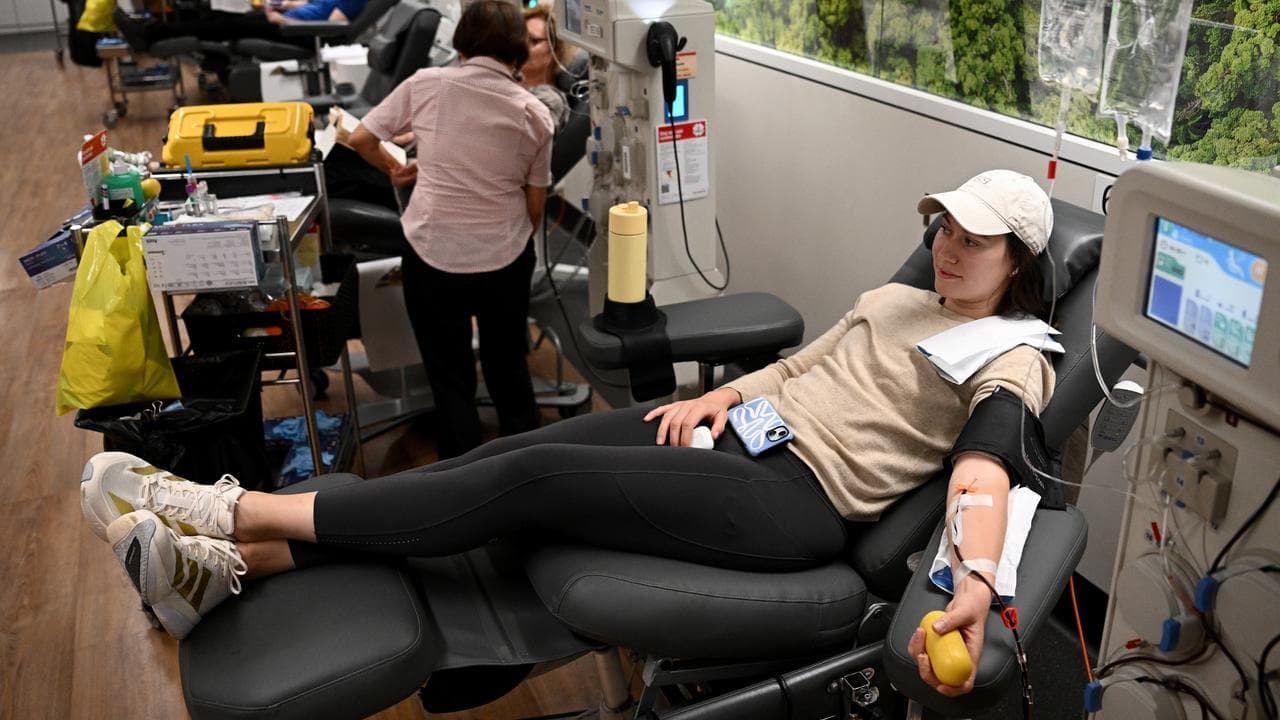The Statement
A Facebook post suggests a new study shows that masks are ineffective at preventing COVID-19 infection.
The post discusses the findings of a Danish study, which compared the incidence of the coronavirus in a group that were told to wear masks and a group that did not wear them.
The post describes the results and includes a diagram showing a small difference in the number of people who caught COVID-19 in the two groups, which it said was "not distinguishable from a chance finding".
"This is probably the best evidence we have up to now, which is disappointing for advocates of mask use to prevent covid-19 infection," the post reads.
"This evidence is consistent with previous trials which found no effect in trials designed to assess the effect of masks to prevent the community transmission of influenza."
At the time of publication, the November 19 post had more than 100 reactions and 50 shares.
It was posted by COVID Plan B, a group of seven academics including three health science lecturers. The group claims the risks of the virus have been overstated and efforts to reduce the spread of COVID-19 are more harmful than the virus itself.
The group has more than 2300 followers on Facebook and has made several posts about the Danish study. It also posted a YouTube clip of COVID Plan B spokesperson and University of Auckland epidemiologist Simon Thornley discussing the study's findings. In the video, he says: "The evidence is strongly pointing in the direction of masks not being effective in a community setting".

The Analysis
Researchers in Denmark published a study in the journal Annals of Internal Medicine on November 18 which set out to determine whether recommending people wear masks reduced infection with SARS-CoV-2, the virus that causes COVID-19.
It included a randomised control trial involving more than 6000 people, half of whom were asked to wear surgical masks in public while half were placed in a control group.
After a month, the participants were tested for the virus to determine whether masks reduced the number of people who contracted the illness.
The study found 2.1 per cent of the control group were infected compared to 1.8 per cent of the mask-wearing group, a result that researchers said was not statistically significant.
It said the findings had a 95 per cent confidence interval compatible with mask use leading to anywhere from a 46 per cent reduction to a 23 per cent increase in infection for wearers.
The study said 46 per cent of the mask group wore the coverings as recommended, while 47 per cent wore them predominantly as recommended, and seven per cent not as recommended.
In conclusion, the authors said the recommendation to wear masks "did not reduce the SARS-CoV-2 infection rate among wearers by more than 50 per cent".
But they added that this did not mean masks were ineffective because the study did not look at whether masks limited the spread of the virus from infected people, which is called "source control".
"The findings ... should not be used to conclude that a recommendation for everyone to wear masks in the community would not be effective in reducing SARS-CoV-2 infections, because the trial did not test the role of masks in source control of SARS-CoV-2 infection," the study said.
"While we await additional data to inform mask recommendations, communities must balance the seriousness of COVID-19, uncertainty about the degree of source control and protective effect, and the absence of data suggesting serious adverse effects of masks."
University of Otago epidemiologist and public health professor Michael Baker noted that the study did not show masks were ineffective at reducing community transmission of the virus.
Prof Baker said the main benefit of masks was not to protect the wearer from infection, but to prevent the mask wearer from spreading disease.
"There is nothing at all surprising about the findings of the Danish study and it no way alters or contradicts the current understanding of how masks operate for mass masking," he told AAP FactCheck during a phone interview.
"The main purpose of mass masking is not to protect the wearer, so the Danish study is really not the one you would use to work out whether mass masking is working or not."
He said the study found masks had a small protective effect, although this was not statistically significant due to the sample size in the study.
Prof Baker said masks were known to effectively protect the wearer in a medical setting, but this required high-quality masks and face shields to protect the eyes.
"We already know that very high-quality masks that are worn robustly by people are effective. That's what healthcare workers use and if you really believe that masks have no benefit then why are healthcare workers using them at all. It's a matter of life or death for them."
University of Otago public health professor Nick Wilson, who has published articles on the efficacy of masks (see examples here and here), said the Danish study had many limitations.
The study listed its limitations as including inconclusive results, missing data, variable adherence, and patients self-reported findings based on home tests.
However, Prof Wilson told AAP FactCheck via email: "Public health action in an ongoing pandemic emergency should be guided by the totality of the scientific evidence - which favours mask use - especially in indoor environments."
University of Auckland associate professor and microbiologist Siouxsie Wiles said it was misleading to claim the Danish study found masks were ineffective.
Dr Wiles said the main benefit of mask use was to prevent infected people from spreading COVID-19 and the study did not look at this.
Both the CDC and the World Health Organization (WHO) recommend people wear masks to slow the spread of the virus.
The CDC recommends everyone over the age of two should wear a mask in public and around visitors at home.
A recent CDC report on masks said cloth masks could block up to 50-70 per cent of the fine droplets and particles that people exhale. It cited a number of observational studies that found masks reduced the transmission of COVID-19.
WHO released advice on masks in June, which recommended the public wear them in a number of instances, including where physical distancing was difficult, like on public transport (page 7, table 2).
It cited numerous studies, including ones that looked at the efficacy of masks for controlling influenza (page 6), however the report noted that was "no direct evidence (from studies on COVID-19 and in healthy people in the community) on the effectiveness of universal masking of healthy people in the community to prevent infection with respiratory viruses, including COVID-19".
When contacted by AAP FactCheck, Dr Thornley didn't dispute that the Danish study did not look at whether masks were effective at reducing community transmission.
He said there was evidence to support the use of masks, but research that found masks were beneficial was largely from observation studies and not randomised trials.
"Generally, meta-analyses of randomised trials are considered the highest level of evidence," Dr Thornley said.
"To my knowledge, meta-analyses of trials for use of masks to prevent transmission of influenza do not demonstrate benefit of the use of masks."
He pointed to a meta-analysis, published in the CDC journal Emerging Infectious Diseases in May, that included 10 randomised control trials investigating whether face masks were effective in reducing influenza.
The study said it "did not find evidence that surgical-type face masks are effective in reducing laboratory-confirmed influenza transmission, either when worn by infected persons (source control) or by persons in the general community to reduce their susceptibility".
However, the authors noted "most studies were underpowered because of limited sample size, and some studies also reported suboptimal adherence in the face mask group".
A PolitiFact fact check found it was incorrect to state the meta-analysis proved masks were ineffective; it was more accurate to say it found a lack of evidence.
One of the report's authors said suggestions that the study found masks were ineffective were "confusing absence of evidence with evidence of absence".

The Verdict
While the Danish study did not find a statistically significant change in rates of COVID-19 infection among people wearing masks, it carries several limitations - including a small sample size and potential reporting flaws. It also did not examine whether masks reduced the spread of the coronavirus from infected individuals, which experts say is the primary reason for mask-wearing recommendations.
Missing Context - The content may mislead without additional context.
* AAP FactCheck is accredited by the Poynter Institute's International Fact-Checking Network, which promotes best practice through a stringent and transparent Code of Principles. https://aap.com.au/












